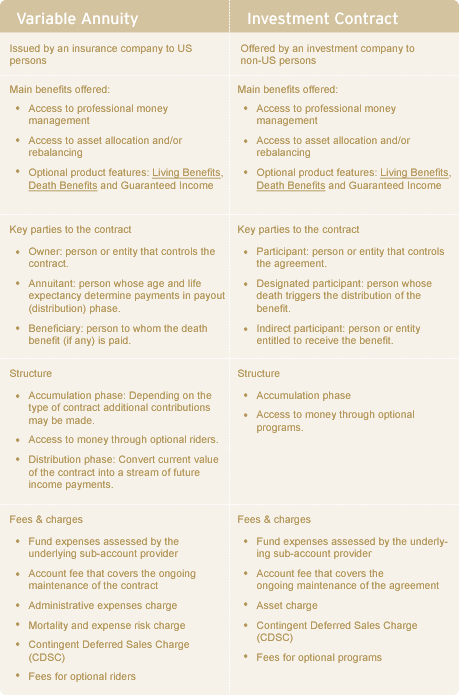Read This Before You Buy an Annuity
Post on: 16 Июль, 2015 No Comment

This article was written by Timothy L. Takacs, Certified Elder Law Attorney.
Martha asks:
My husband Dan has recently been admitted to the nursing home. Medicaid has told me that I must spend half of our $150,000 savings on his nursing home care before Medicaid will pay. My friends tell me that if I buy an annuity with that money instead, Dan will qualify for Medicaid immediately. Is that what I should do?
The type of annuity used in Medicaid planning is an immediate irrevocable annuity. It is not a tax-deferred annuity. A tax-deferred annuity — the most common type of annuity — is not irrevocable, although the owner is penalized for withdrawing the money from it before the annuity comes due. The annuity used in Medicaid planning is sometimes called a Medicaid friendly annuity.
Here is how a Medicaid friendly annuity works: As the spouse at home — the community spouse in Medicaid-speak — Martha gets to keep half of her and Dan’s savings under Medicaid’s complicated asset rules for spouses. That half, $75,000, is called her community spouse resource allowance. Of the other half, Dan gets to keep $2,000. The rest of their savings, $73,000, must be reduced to zero before Dan can qualify for Medicaid nursing home benefits. (To put it more accurately, Martha and Dan can have no more than $77,000 before Dan qualifies for Medicaid.)
Martha and Dan pay an insurance company $73,000 for a Medicaid friendly annuity. The insurance company agrees to pay Martha $1,000 a month for a certain period of time, for example, seven years. As long as Martha’s actuarial life expectancy is at least seven years, the annuity is regarded as actuarially sound and therefore will meet the requirements for a Medicaid friendly annuity imposed by many State Medicaid agencies.
Instead of spending that $73,000 on the nursing home, Martha and Dan spent it on a Medicaid friendly annuity. Dan qualifies for Medicaid immediately and Martha gets $1,000 a month for the next seven years.
Before you buy an annuity, however, please consider the following:
1. An immediate irrevocable annuity is in fact irrevocable. Not long ago I represented a married couple, one of whom (the wife) had been in an Ohio nursing home before she and her husband moved to Tennessee. In order to qualify his wife for Medicaid, at the advice of an attorney her husband purchased an immediate annuity using most of their savings shortly before she went into the nursing home. Three months later, she died, and now he is stuck with an annuity he doesn’t want.
2. Medicaid friendly annuities are sold (and bought) by folks who don’t understand the Medicaid spousal rules. In Medicaid planning, the only reason to buy them is to protect the nursing home spouse’s share of the couple’s money from the nursing home. But there are other ways to protect that money. Can you raise the community spouse resource allowance by a Medicaid appeal or by court order? If so, you don’t need to buy an annuity.
The couple from Ohio made this mistake. Had the wife lived long enough to apply for Medicaid, her husband was entitled to an increase in the community spouse resource allowance. He would never have had to purchase an annuity at all. Because his and his wife’s income was so low and his monthly expenses were so high, the State Medicaid agency would have allowed him to keep all of the couple’s money.
3. Some States believe that annuities are an unintended loophole in federal Medicaid law. In their never-ending quest to balance their budgets, therefore, some states, by policy change or by court order, have put a stop to this strategy — even though, in my opinion, federal law clearly allows for the purchase of actuarially sound annuities. (See the November 20, 2000, Elder Law FAX, for example.) Before you make the purchase, make sure you know how your State treats Medicaid friendly annuities.

4. Even in states that currently allow Medicaid annuities, your State’s policy could change at any time, and you could be the case on which it changes. You could find yourself stuck with an immediate irrevocable annuity that you can’t cash out, and you and your spouse would have to pay the nursing home.
5. There may be better things to do with the at-risk money. You could buy income-producing property with it and generate an income stream for yourself. If the property is chosen wisely — that is, it’s a good investment and not just a way to save the money from the nursing home — its value will increase as well as provide a steady stream of income for you as the community spouse. After your husband is approved for Medicaid, you can do what you want with the rental property (sell it or give it away) without affecting eligibility of the nursing home spouse.
6. You don’t need to buy a Medicaid friendly annuity from a financial institution or insurance company. All you are doing is giving money to an insurance company to cut up your money into little pieces and give it back to you one piece at a time. In many states (including Tennessee) the State Medicaid agency will allow you to purchase a private annuity. Ask a trusted relative or friend to be the insurance company and follow the recipe for setting up a private annuity that is set out in your State’s Medicaid manual.
In addition to their usefulness in Medicaid planning, immediate annuities should be evaluated for their usefulness as part of an individual’s overall investment strategy. When evaluated solely as a strategy for saving the money so the nursing home won’t get it, the immediate irrevocable annuity can fall short when measured against other strategies available to you as the community spouse.
Remember that the reason you are buying an annuity is to qualify your husband for Medicaid. Purchasing an annuity may be an excellent option for you, but it may not be the best option. Before making the annuity purchase, please get advice from a qualified elder law attorney.
Note: This document is not meant to give legal advice. You are not to rely on the limited information given here. Before acting on any information presented here, you are strongly urged to consult with an attorney who is competent in this area of the law.














